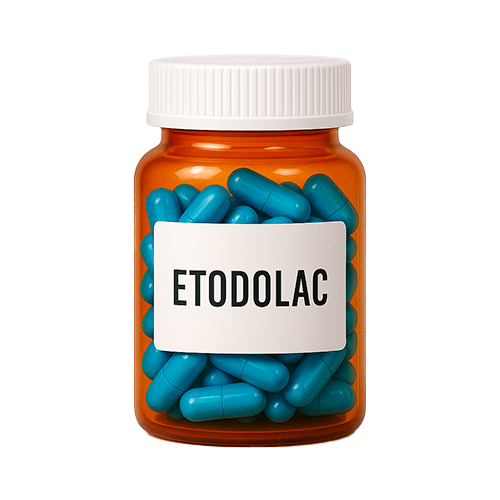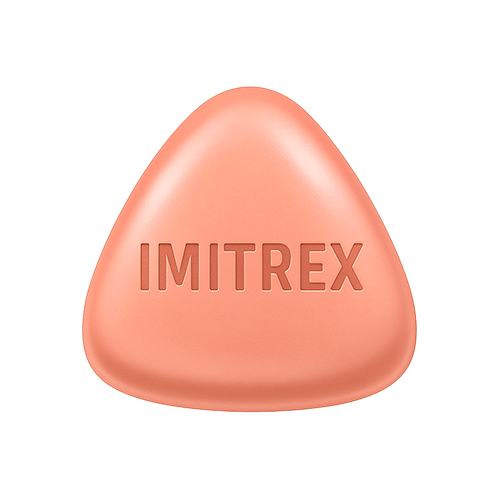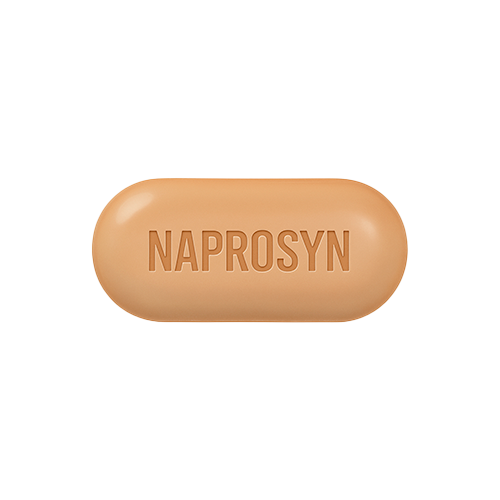Etodolac Product Description
Etodolac is a widely prescribed non-steroidal anti-inflammatory drug (NSAID) available in tablet form, specifically designed to effectively manage pain and reduce fever. As an indoleacetic acid derivative characterized by a tetrahydropyranol structure, Etodolac uniquely targets inflammation by inhibiting the cyclooxygenase enzyme, consequently reducing prostaglandin synthesis from arachidonic acid. This action effectively lowers receptor sensitivity to pain mediators such as bradykinin and histamine, significantly reducing symptoms like swelling, leukocyte migration, and fever. Due to its moderate selectivity towards COX-2, Etodolac predominantly acts directly at the inflammation site, offering targeted pain relief and enhanced patient comfort. It is highly beneficial for both short-term pain management and long-term therapeutic use in conditions like rheumatoid arthritis, osteoarthritis, ankylosing spondylitis, as well as for various acute pain syndromes.
Etodolac Safety Information
For optimal gastrointestinal tolerance and reduced irritation, Etodolac tablets are best taken after meals, alongside food, or accompanied by antacid medications, especially during prolonged use. Individuals with a history of hypersensitivity to NSAIDs or acetylsalicylic acid, severe liver, kidney, or heart disease, active or recurrent gastrointestinal ulcers, or recent cardiac surgery, such as coronary artery bypass grafting, should avoid Etodolac. Additionally, pregnant and breastfeeding women, as well as minors, should not use this medication due to potential risks. Combining Etodolac with other NSAIDs significantly raises the risk of gastrointestinal complications, such as bleeding or ulcers. It also increases the effectiveness of oral anticoagulants and can elevate lithium levels in the bloodstream, raising the hematological toxicity of medications like methotrexate. Patients should also avoid concurrent use with specific drugs, including cefamandole, cefoperazone, cefotetan, valproic acid, or plicamycin, due to an increased risk of blood clotting disorders and suppressed platelet function. Special caution should be exercised by individuals with a history of severe allergic reactions or bronchial asthma associated with NSAID intake.
Etodolac Side Effects
As with many medications in the NSAID class, Etodolac may occasionally cause side effects such as nausea, vomiting (which may be bloody), constipation, diarrhea, ulceration or irritation of the stomach and intestines, ulcerative stomatitis, dizziness, general weakness, and various allergic skin reactions. These side effects are typically outlined clearly in the medication guide and can often be minimized or prevented by careful dosage adjustments and following proper administration guidelines. Patients are advised to immediately report severe or persistent symptoms to their healthcare provider to ensure appropriate management and care.











Reviews
There are no reviews yet.